What we offer
Studies in a wide range of research disciplines can be conducted with our wolves and dogs, including physiology, veterinary medicine, behavioral and cognitive research, husbandry and training, evaluation of livestock protection measures, and validation of equipment for monitoring wild wolves, among others. The welfare of our animals is always our top priority.
Our wolves and dogs are routinely trained to acquire the following skills:
- They are accustomed to being observed up close by unfamiliar people.
- They are familiar with the test enclosures and testing rooms, know the sluice system, and can be called through sliding doors from one enclosure area to another.
- They can wear collars and leashes.
- They allow a familiar caregiver to briefly hold them by the collar, for example when they need to inspect a test setup.
- They are accustomed to medical examinations and allow themselves to be handled by their caregivers anywhere on their body.
- Urine samples can be collected from animals that display marking behavior.
- Hair and saliva samples can be collected.
- Fecal samples can be collected.
- Blood samples can be taken as part of medically necessary procedures.
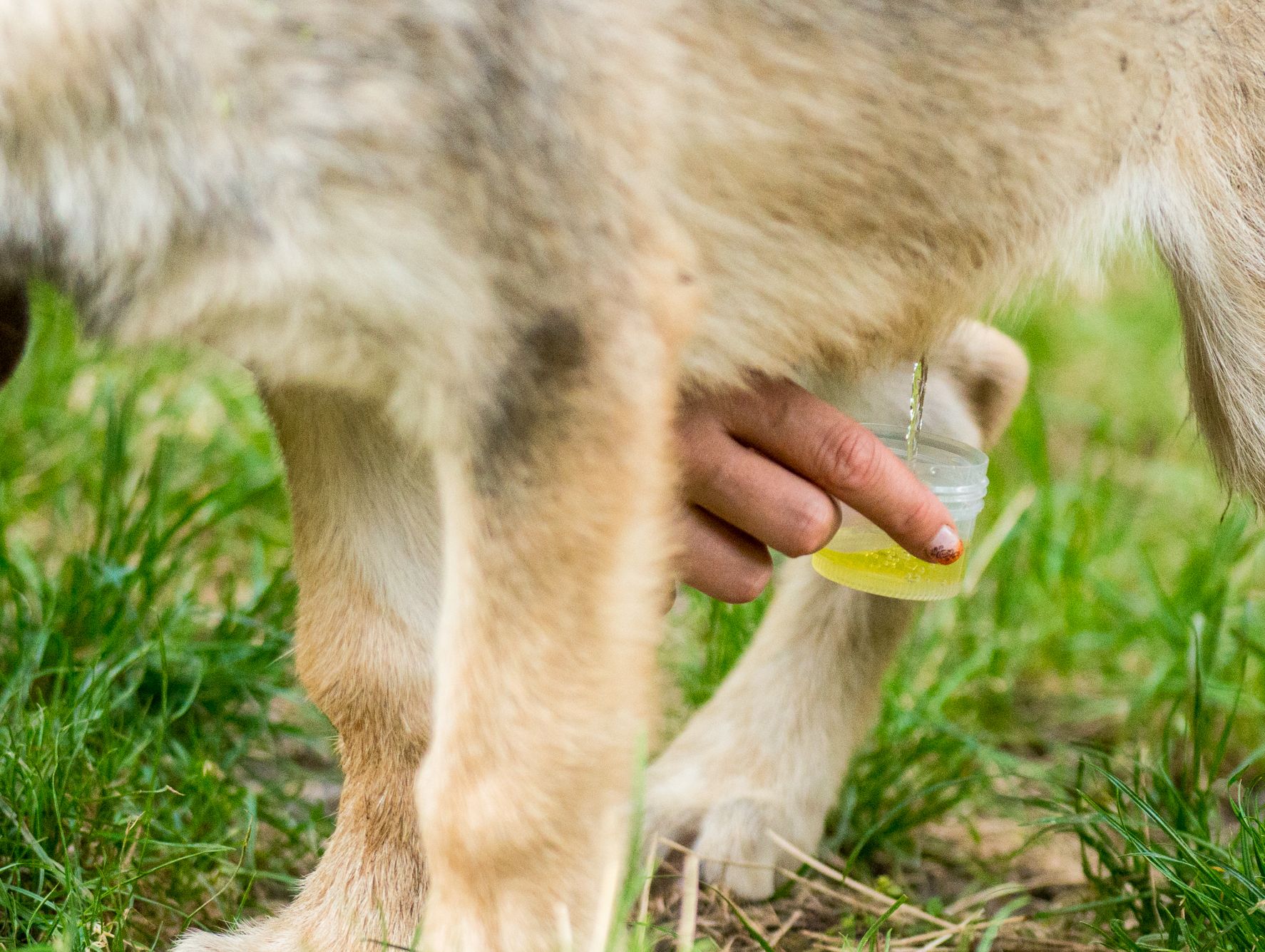
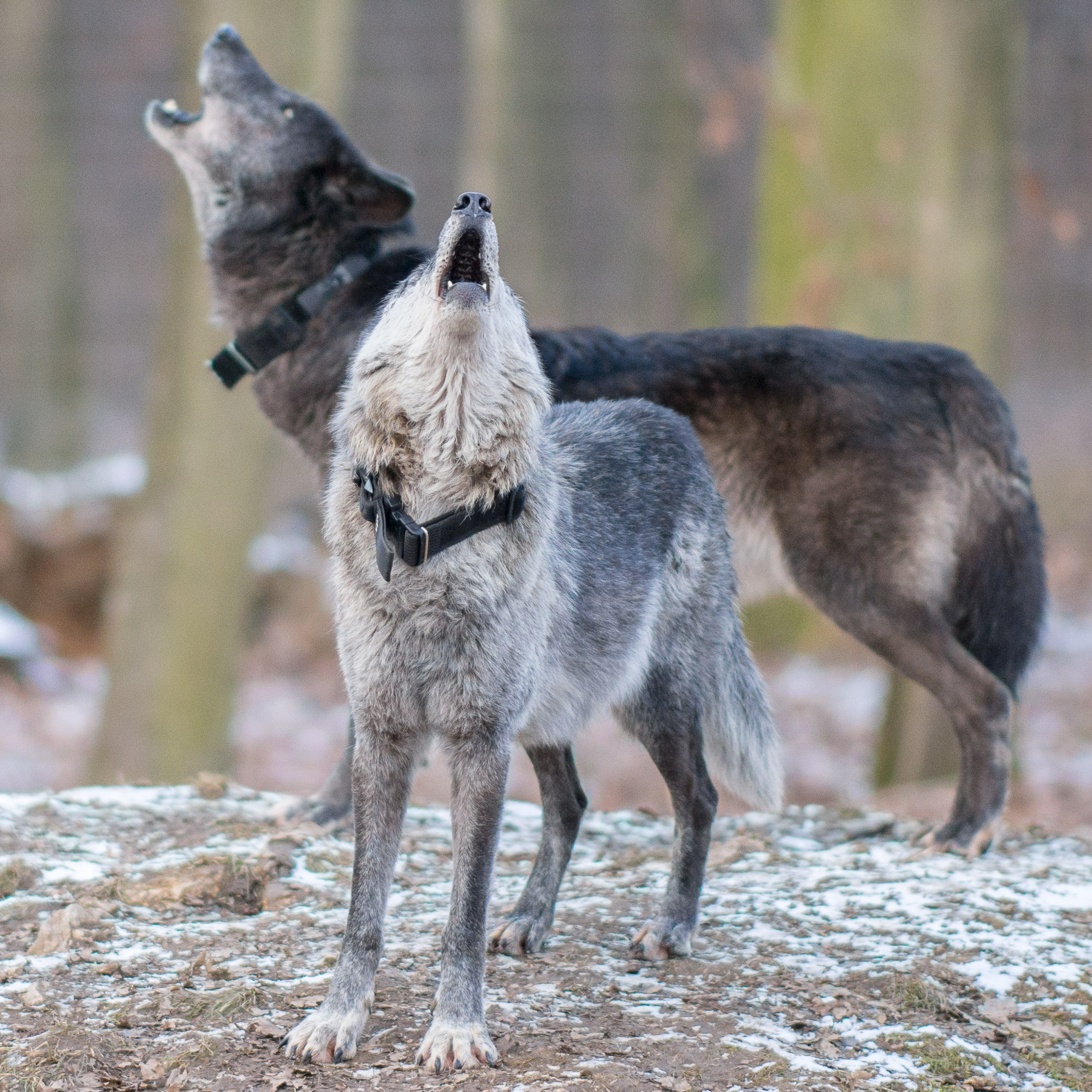
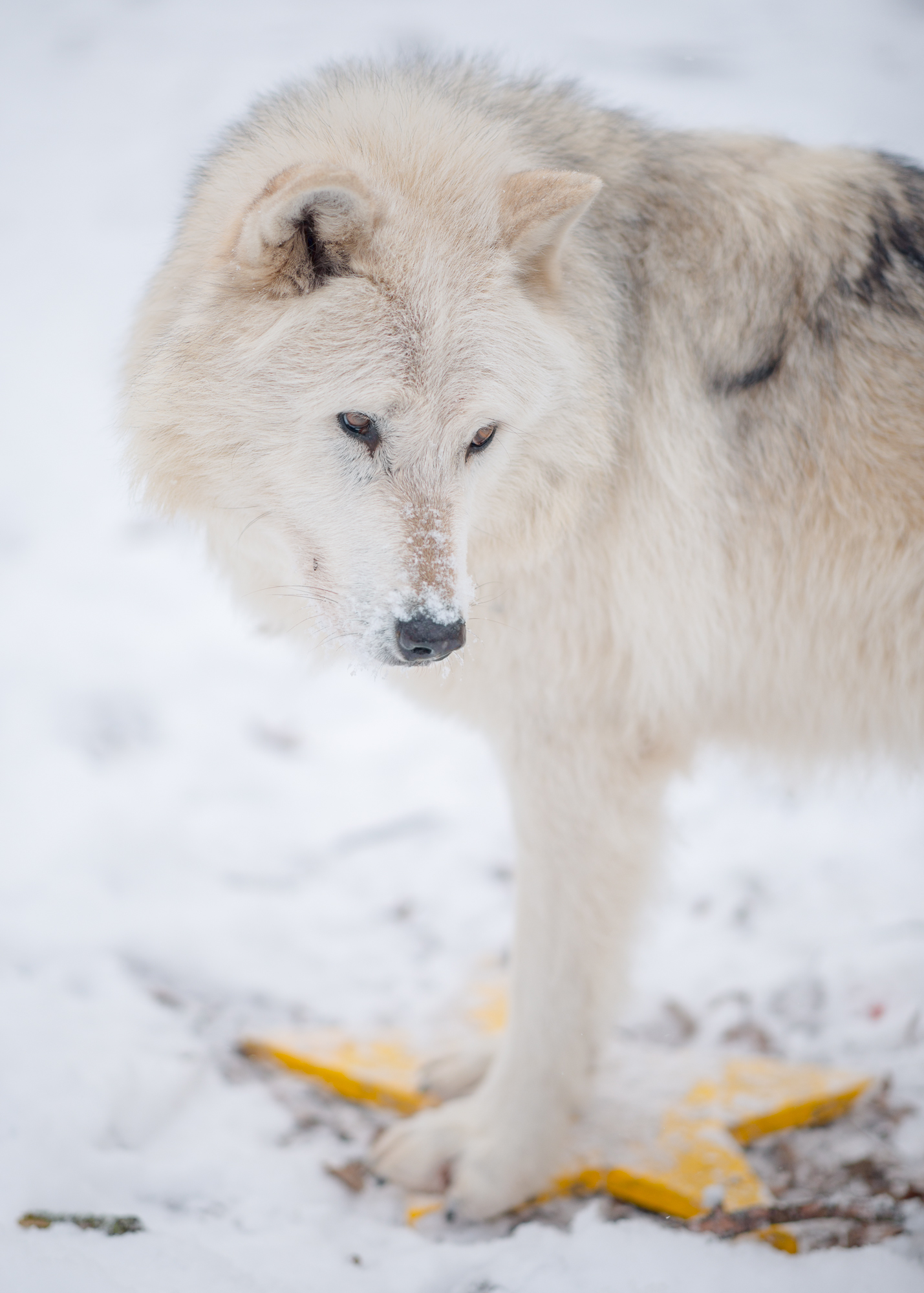
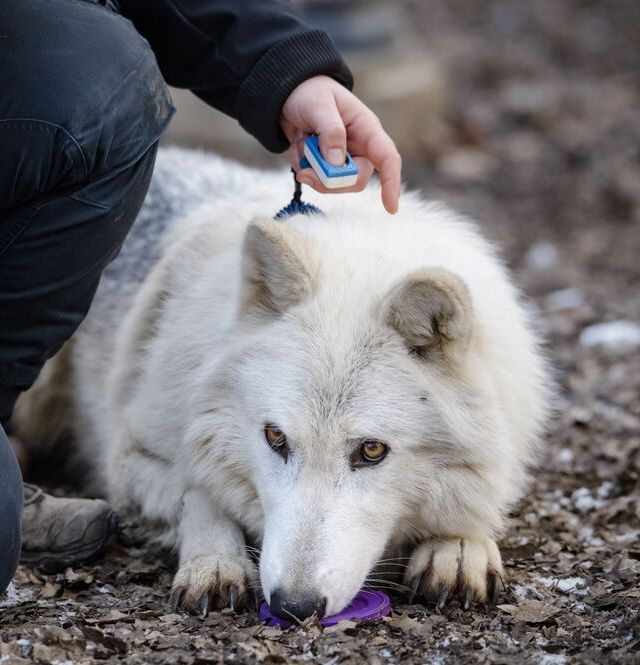
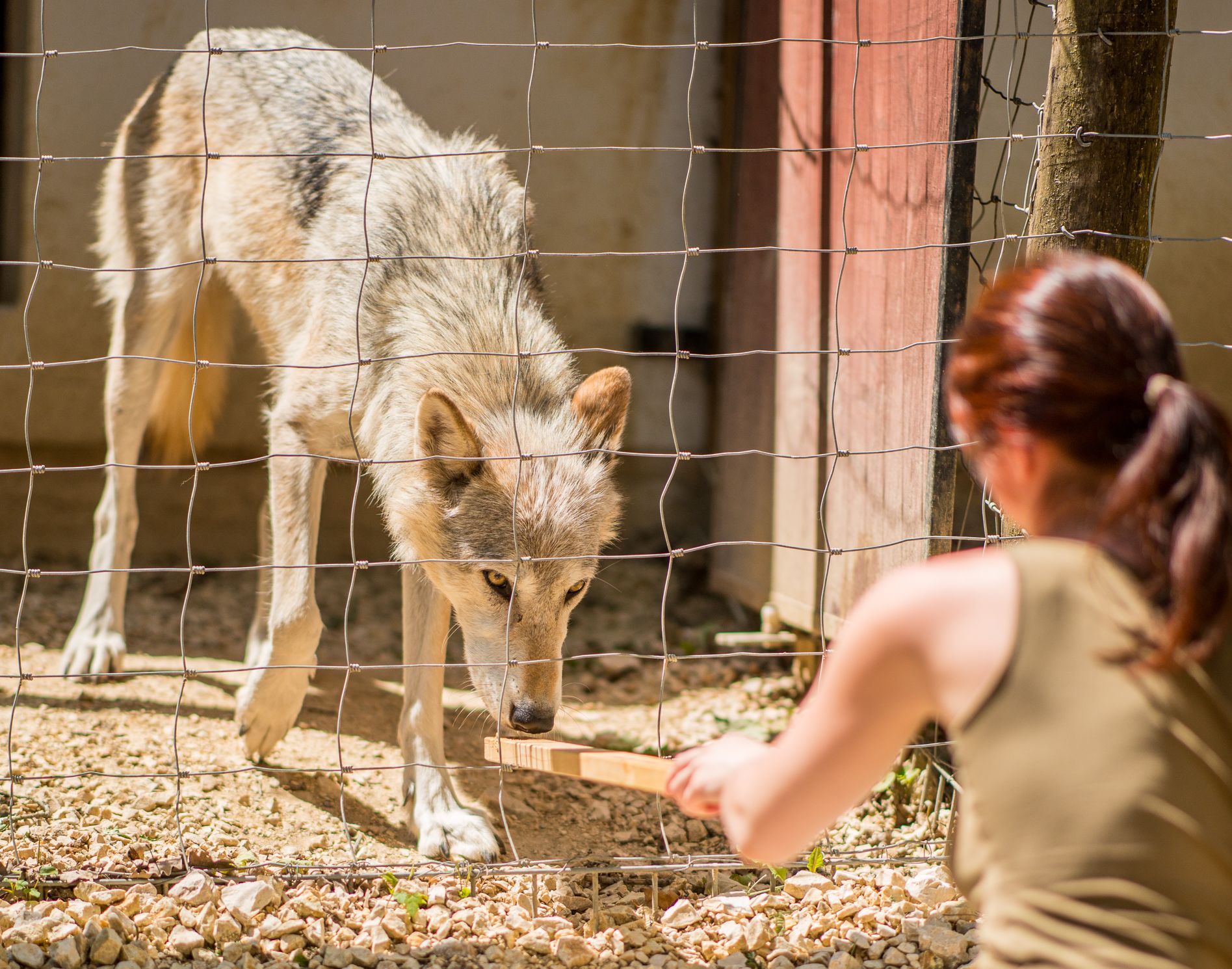
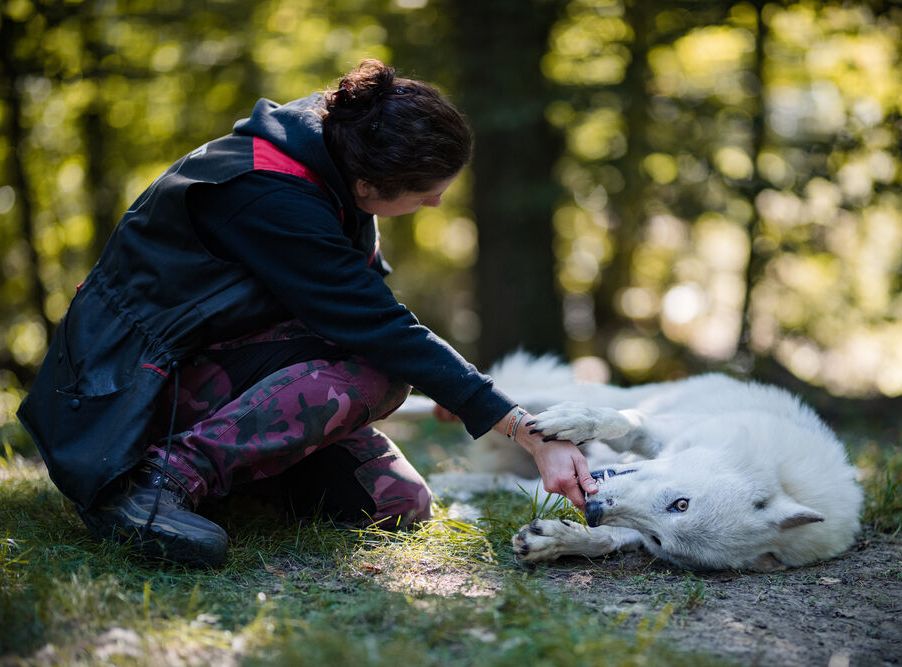
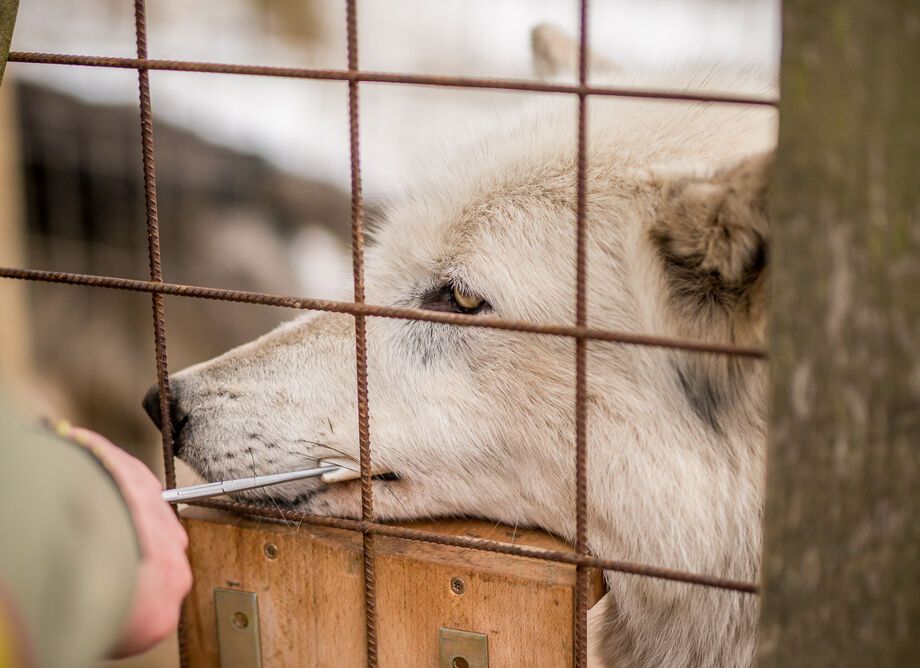
Additional skills can be trained as needed or by arrangement, such as operating experimental apparatus, pulling on a rope, pressing a buzzer, standing on a floor marker, touching a specific target with the nose, carrying specific equipment, etc.
Important: The skills listed above apply to adult animals (3 years and older). In particular, juvenile wolves may go through developmental phases in which they are less confident and may not perform previously learned behaviors reliably.
Among the wolves, there are also individual animals that can no longer be in direct contact with humans. These wolves cannot be held by the collar. However, in most cases, tests can still be conducted in a modified form.
Our work is based on voluntary participation, and our wolves and dogs are not machines. Therefore, it is always possible that an animal may refuse or discontinue a test.
During the mating season (mid-December to the end of February), we advise against conducting behavioral and cognitive tests that require a certain level of motivation from the wolves.